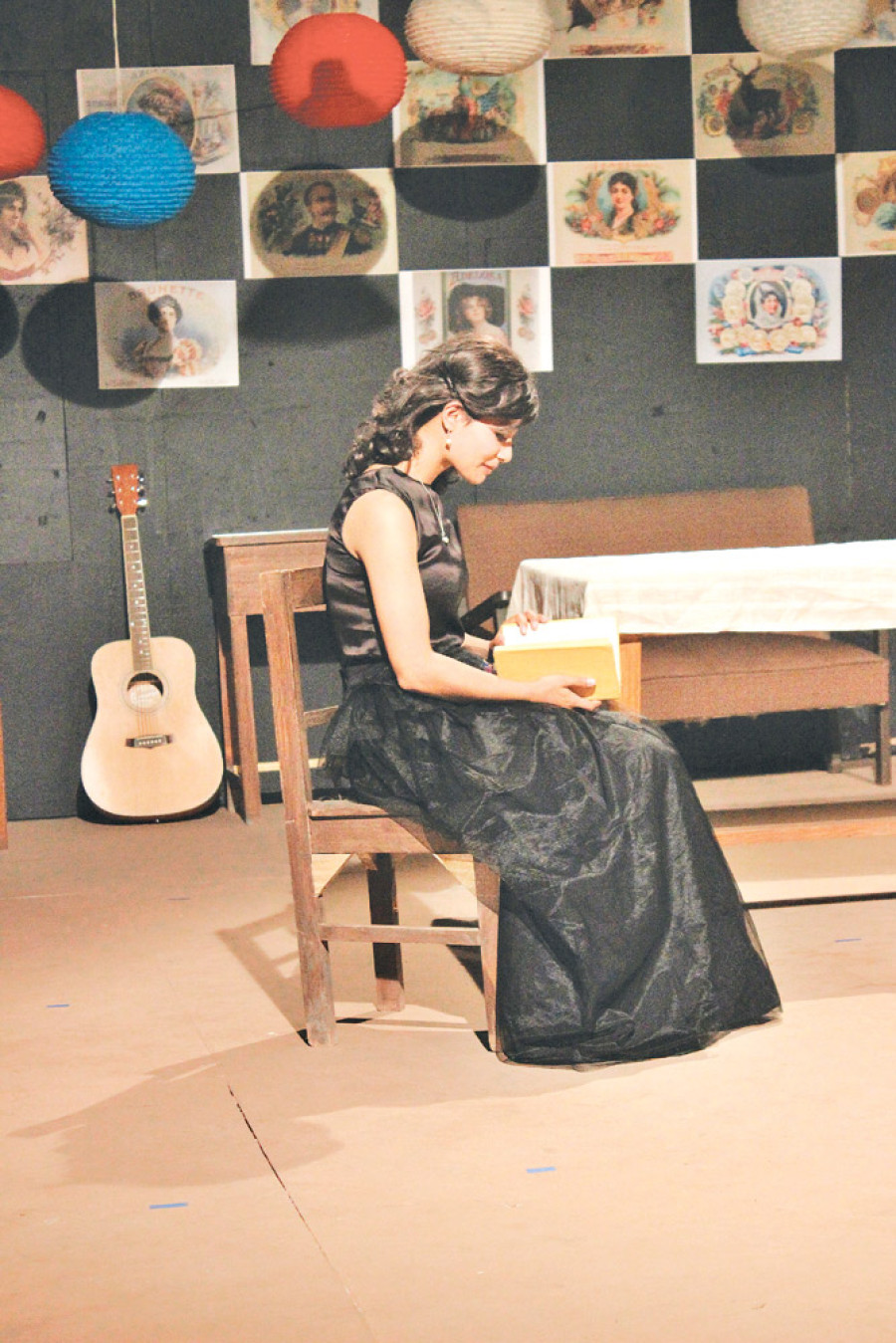Entertainment
A breath of cigars and Anna
The play revisits the ceaselessly relevant clash between tradition and modernity—a clash that acquires particular relevance in the context of contemporary Nepali reality
Kurchi Dasgupta
One World Theatre’s new production Anna in the Tropics brings a refreshing breath of a different culture to Nepal’s English theatre stage and tradition. For roughly two hours the audience are transported to a Floridian cigar factory, heavily immersed in a Cuban home culture, and are made to negotiate a very unlikely text—Tolstoy’s Russian classic, Anna Karenina.
Anna in the Tropics is an unexpected play for many reasons. Almost old-fashioned in its form as a classic tragedy, the play brought a surprise win to Nilo Cruz in the shape of a Pulitzer for Drama in 2003. But given its peculiar cultural specificity, one wonders why director Deborah Merola chose it for a production in Nepal. The answer is not elusive either: Anna in the Tropics not only records the imminent failure of a cigar factory at the onset of the Great Depression; it revisits the ceaselessly relevant clash between tradition and modernity—a clash that acquires particular relevance in the context of contemporary Nepali reality. Also, migration and migrant labour is a theme that weaves the play’s different layers together and this alone could serve as reason enough. But then, why does Nilo Cruz choose to move his plot and characters in alignment with and in response to Tolstoy’s great novel? He could have chosen any other text from a vast history of the novelistic tradition, and the Time List of 10 Best Novels was yet to appear on the horizon! For one, Anna Karenina is a brilliant example of the Russian realist novel tradition—an essentialist realism that Cruz is undeniably trying to achieve through the dialogues and setting in his beautifully atmospheric play while seamlessly introducing a magical, lyrical element that often pushes the play into the realm of magic realism and rightly so, given its strong Latin American roots. Cruz not only manipulates his characters in sync with Anna Karenina’s, but he also structures their actions around the tragic plot of the novel. Incidentally, quite as the novel was serialised in its original form, so does its intermittent reading in the play, thereby reproducing a resonance with its originally published format.
Both are inescapably romantic, based on the vagaries of love as they are, and hence expectedly tragic. Women hold centre-stage in both, verbally exploring their inner worlds for an audience. Kavita Srinivasan absolutely shines as the eldest daughter Conchita, the one whose character resonates most with Anna’s. Srinivasan’s nuanced and intense acting succeeds in brilliantly conveying the inner turmoil of a wife Vs a lover, a daughter Vs a factory worker. Her fluid physicality and confident handling of risqué scenes brought an unforeseen and global edge to the production. She was aptly supported by the Divya Dev in the role of Juan Julian, the lector and the ‘tragic hero’ of the play. Lectors were paid by workers in a re-mechanised cigar industry to read them books as they worked. Dropping sartorial elegance, thanks to Kalsang Lama’s exquisite costume design, Divya Dev wields the role of an affected yet dashing romantic and a lover with ease. He obviously replicates Vronsky, the lover who drives Anna to her tragic suicide. Cruz seems to have taken poetic revenge on Anna’s behalf by turning the table on Vronsky-Julian, and making him the victim instead. Julian’s death is structurally inevitable though, given his romantic desire to cling into tradition in the face of modernity and mechanisation. And so he must be decimated by the factory-owner’s half-brother Cheche, or Chestor, played gallantly by Hemanta Chalise. His dark frustrations and heartbroken resistance to Julian’s romantic effeteness and is counterpointed by his dogged desire for modernisation. Cheche’s insularity makes him a better candidate for the role of the tragic hero but what chance does a staid materialist stand in face of a romantic intellectual? None whatsoever thinks Cruz. The performances of the elderly couple, played by Sajag Rana as Santiago and Loonibha Tuladhar as Ofelia, are remarkable in their authenticity and strength of portrayal. Tuladhar is especially sprightly and stands shoulder to shoulder with Srinivasan’s Conchita.
Rojita Buddhacharya’s young Marela swings between an unlikely but riveting teenager and an ineffectual romantic heroine. It will undoubtedly weave better over the course of the play’s run. A special gain was to watch Rajkumar Pudasaini as Polomo aka Karennin. Pudasaini, a familiar name in Nepali theatre, has finally come of age as an actor on the English stage. His Polomo is self-contained yet intense and wistful. Interestingly enough, actors in even the smaller roles have performed with a dedication and elan, which is exemplary. Saroj Guragain’s premeditated slowness as a member of the proletariat and contrasting alacrity as a fighting rooster or drunken dancer leaves a mark. As does Kripa Bajracharya—her foot-tapping dance number and raucous rooster brought sizzle to the stage.
The art direction and lights are adequate, but the jars of Fevicol are an eyesore and need to be camouflaged in 1920’s packaging to be authentic. Which is happily counterbalanced by the perfectly designed and executed costumes of Kalsang Lama. It was an evening from a different era and a different flavour of life; Debora Merola needs to be lauded for exquisitely reproducing such a culturally different reality with a Nepali cast and crew.
Overall, I left the theatre with a feeling of having watched perhaps the best production yet of One World Theatre. The show runs till March 13 at Theatre Village at 5 pm, and has matinees on Saturdays.




 7.12°C Kathmandu
7.12°C Kathmandu










